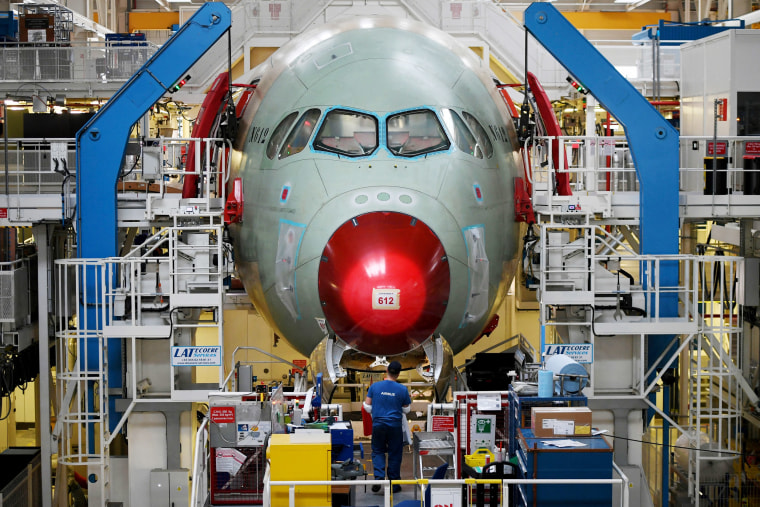
FAA Warns: Boeing and Airbus Accused of Using ‘Fake’ Titanium in Planes
The extensive use of titanium in the aerospace industry has been well-documented for its strength, durability, and light weight. However, recent revelations by the Federal Aviation Administration (FAA) suggest that Boeing and Airbus, two of the leading aircraft manufacturers, may have unknowingly used counterfeit titanium in their planes. This development raises concerns about the safety and reliability of aircraft constructed with potentially substandard materials.
Titanium is a crucial material in aviation due to its excellent strength-to-weight ratio, corrosion resistance, and high heat tolerance. It is commonly used in critical components such as landing gear, engine parts, and structural elements of aircraft. Given the demanding conditions under which airplanes operate, the quality and integrity of the materials used in their construction are of utmost importance to ensure passenger safety and the overall airworthiness of the fleet.
The FAA’s discovery of possible counterfeit titanium being used in Boeing and Airbus planes underscores the challenges faced by the aerospace industry in maintaining strict quality control standards across the supply chain. Counterfeiting is a serious issue that can have far-reaching implications for the safety and performance of aircraft. Substandard materials may compromise the structural integrity of key components, leading to catastrophic failures during flight.
The implications of using counterfeit titanium in aircraft are concerning on multiple fronts. First and foremost, the safety of passengers and crew is paramount, and any compromise in material quality could jeopardize the integrity of the entire aircraft. Additionally, the financial impact of such a discovery could be substantial, as it may require costly inspections, repairs, or even the grounding of affected planes until the issues are resolved.
Both Boeing and Airbus have responded to the FAA’s findings by conducting thorough investigations into their supply chains and manufacturing processes. They have emphasized their commitment to upholding the highest standards of quality and safety in their aircraft production. However, the potential presence of counterfeit titanium highlights the inherent risks associated with global supply chains and the need for increased vigilance and oversight to prevent such incidents in the future.
Moving forward, the aerospace industry must prioritize transparency, accountability, and collaboration to ensure the authenticity and traceability of materials used in aircraft manufacturing. Enhanced quality control measures, stringent supplier vetting procedures, and regular inspections will be essential in mitigating the risks of counterfeit components entering the supply chain. By taking proactive steps to address these challenges, aircraft manufacturers can uphold the trust and confidence of regulators, airlines, and passengers in the safety and reliability of their products.
